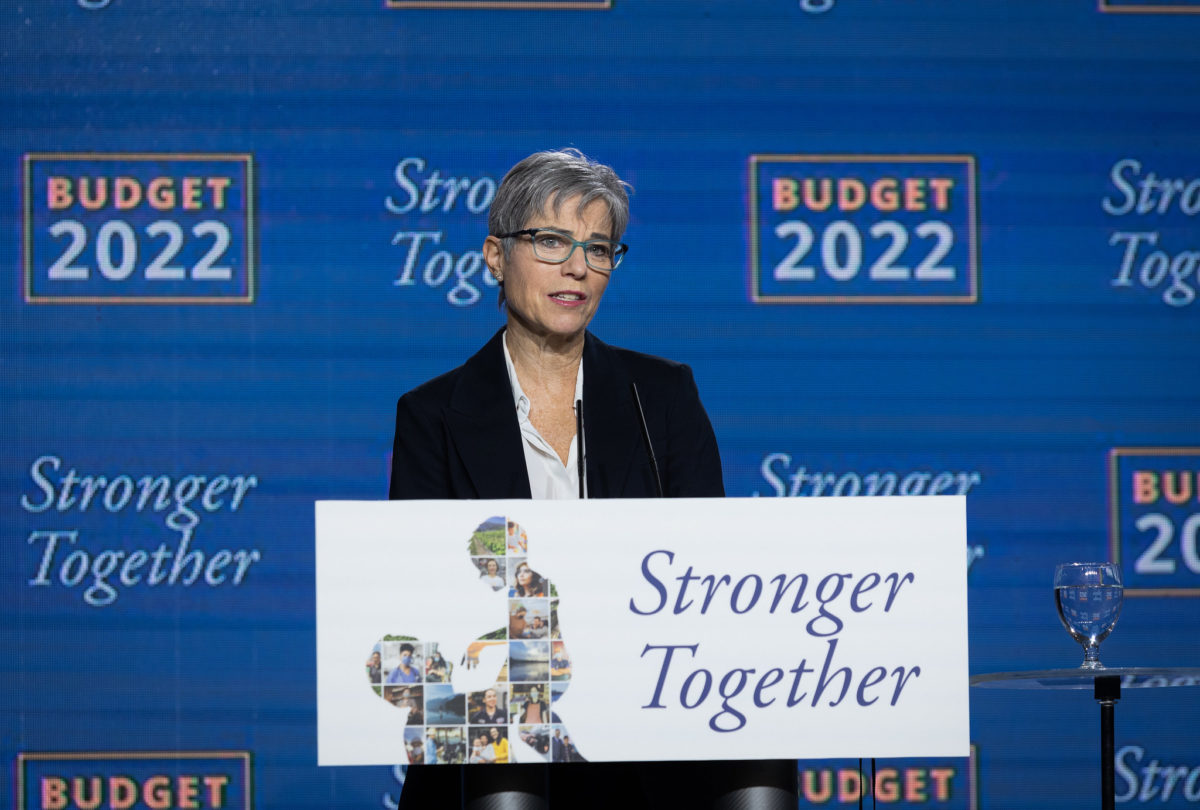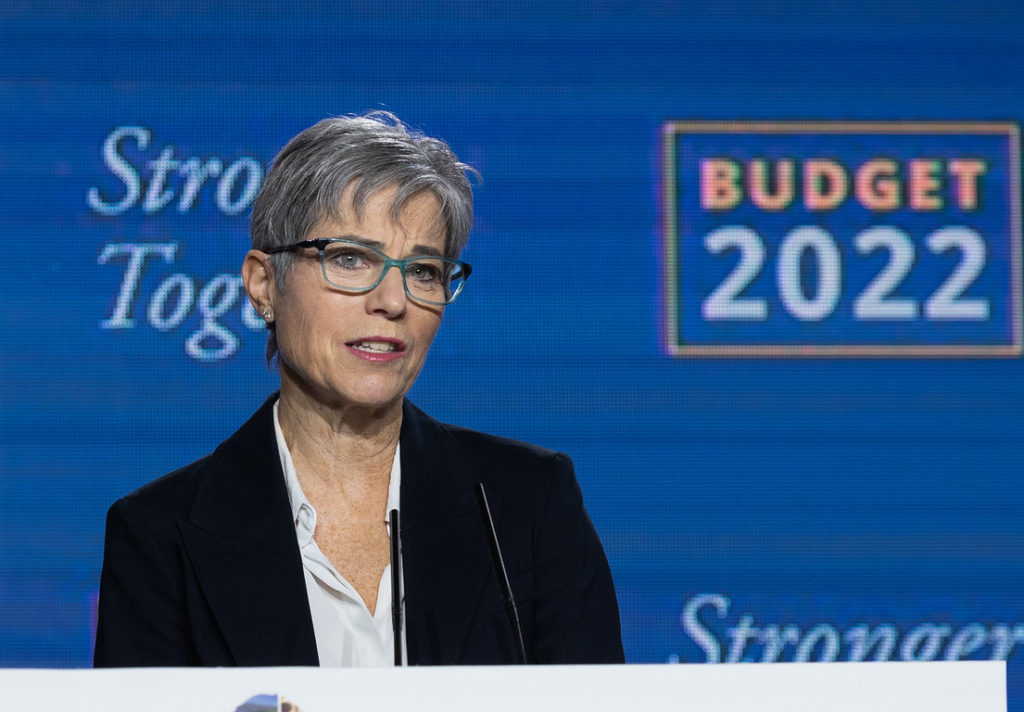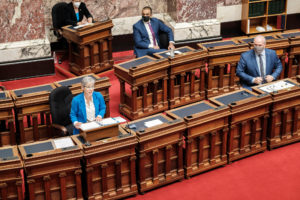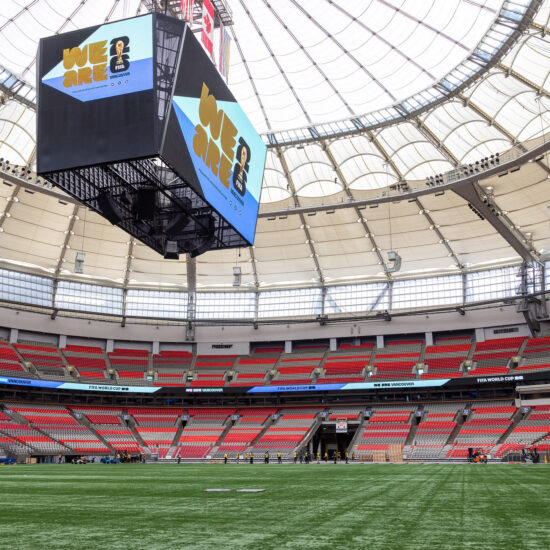
Bob Mackin
B.C.’s NDP government took in $13 billion more and spent $4 billion more than it budgeted for the fiscal year ended March 31.

NDP finance minister Selina Robinson on Feb. 22, 2022 (BC Gov)
In the government’s public accounts for 2021-2022, released Aug. 30, Finance Minister Selina Robinson heralded a $1.3 billion surplus for a budget that was made during the first full winter of the pandemic, before the mass-vaccination program began, while British Columbians were restricted from public gatherings.
Tax revenue was up $6.5 billion, 19.2% overall. Personal taxes ($2.58 billion) and property transfer tax ($1.23 billion) led the way, while B.C. Lottery Corporation ($971 million) and ICBC ($688 million) also brought in more revenue than expected. The government registered $2.07 billion more from forestry and natural gas and mineral royalties.
“It’s not like there’s a truckload of cash out the back of the Legislative buildings that we didn’t spend, it just means that we need to borrow less,” Robinson said.
On the other side of the ledger, a $3.5 billion social spending hike, year-over-year. Health was the most-expensive ministry at $27.6 billion, up $2.3 billion, followed by Education at $15.8 billion.
The NDP said it spent $3.8 billion on pandemic response and economic recovery programs, but Robinson was unable to say how much was spent on the mass-vaccination program, branded ImmunizeBC and overseen by Vancouver Coastal Health chair Penny Ballem.
B.C. ended the fiscal year $90.6 billion in debt, better than the $102.8 billion budgeted.
Robinson was asked why there wasn’t more tax relief for those beginning to suffer higher inflation, higher interest rates and higher fuel prices and why more spending wasn’t directed to hospital emergency rooms or paramedics.
“We certainly do hear the challenges that the healthcare system is facing as a result of COVID, as a result of burnout, as a result of not having the skilled people that we need to deliver these services. As a result of people leaving their jobs, perhaps earlier than most of us expected,” Robinson said.

B.C. NDP finance minister Selina Robinson tables the 2021-22 budget on April 20 (BC Gov)
Auditor General Michael Pickup, however, red-flagged three reservations in the year-end finances: The deferral of $6.5 billion in revenue; the $91 million understating of First Nations gambling revenue sharing; and the incomplete contractual obligations disclosure, which amounts to $3.45 billion by 2028.
The first quarter financial update is coming in September and Robinson admitted the report will be less-favourable as the province reels from economic headwinds.
“This is what happened last year, and this is a very different year. Everything is different,” she said. “We have global inflation, we have people struggling to make ends meet.”
The public accounts were released the same day as the B.C. General Employees’ Union ended picketing at the province’s liquor distribution warehouses in a sign that talks toward a new contract for 33,000 government workers are progressing. Both sides agreed to a media blackout on bargaining.
Support theBreaker.news for as low as $2 a month on Patreon. Find out how. Click here.











